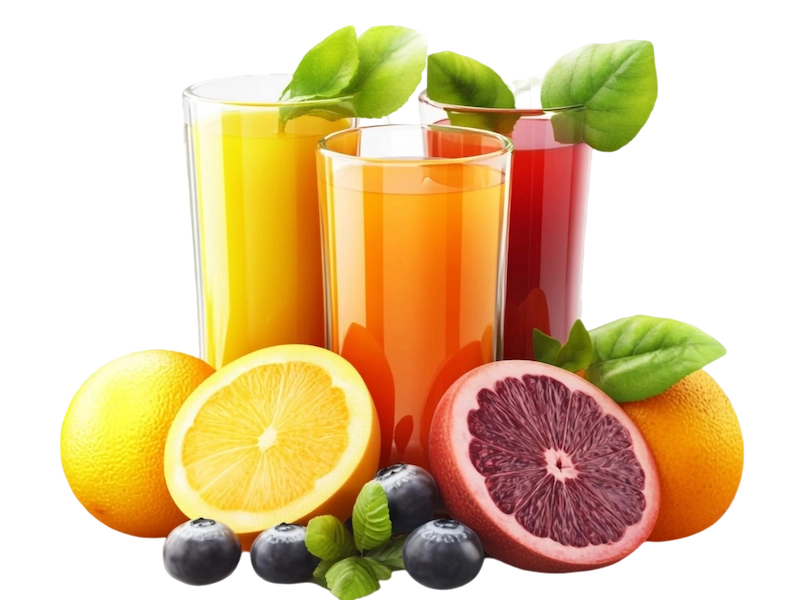Halal Certification for Beverages
The global beverage industry represents a $1.9 trillion market, with Muslim consumers comprising an increasingly significant segment seeking halal certified beverages that align with Islamic dietary laws

Halal Beverage Certification Services
Ensure Your Beverages Meet Islamic Standards with Confidence
The global beverage market is worth nearly $2 trillion, and Muslim consumers are a growing segment looking for halal-certified drinks. Whether you’re producing juice, kombucha, soda, or sports drinks, halal beverage certification is essential to meet religious standards and build trust with consumers.
We offer comprehensive halal beverage certification services customized for the modern beverage industry. From ingredient review to final product testing, our process ensures your drink is fully compliant with Islamic dietary laws.
Why Halal Beverage Certification Matters
Islam teaches that all food and drinks must be both halal (permissible) and tayyib (pure and wholesome). This applies especially to beverages, where fermentation and alcohol traces are common. Even small amounts of alcohol, depending on the source and intent, can affect a product’s halal status.
For Muslim consumers, trust in a halal logo means peace of mind. For manufacturers, certification means access to a growing, loyal market across North America, the Middle East, Southeast Asia, and beyond.
Key Certification Areas We Cover
1. Ingredient Compliance
We thoroughly review all beverage ingredients, including:
- Primary components: water, juices, dairy, tea, coffee
- Flavors & extracts: plant-based, alcohol-free, or safely processed
- Sweeteners & colorants: natural and synthetic sources
- Animal-derived ingredients: such as gelatin, enzymes, or L-cysteine
We flag problematic ingredients like:
- Alcohol from grapes, barley, or dates (najis and haram)
- Wine-derived or beer-based flavors
- Insect-based dyes like carmine or shellac
Our certification services ensures your beverage uses only ingredients permitted under Islamic law.
2. Fermentation Assessment
Many modern beverages like kombucha, kefir, or ginger beer use natural fermentation, which may produce trace alcohol. We assess:
- Fermentation time and conditions
- Final alcohol content (ideally under 0.5%)
- Intoxication potential
We follow prophetic guidelines: natural fermentation is allowed only if it remains non-intoxicating and doesn’t mimic haram drinks.
3. Non-Alcoholic Beverages: Special Focus
Just because a drink is labeled “non-alcoholic” doesn’t make it halal. We evaluate:
- How the drink is made (was it once a haram alcoholic drink?)
- The purpose of alcohol use (flavor carrier vs. intoxicant)
- Final alcohol level and source
For example, many non-alcoholic beers and wines fail certification due to their haram origin. On the other hand, beverages like those from St. Agrestis, which use alcohol only as a flavor carrier (not to simulate wine), may be certified if compliant.
Who Needs Halal Beverage Certification?
We serve a wide range of companies, including:
- Fruit juice and soda manufacturers
- Kombucha and fermented beverage producers
- Sports and energy drink brands
- Functional drinks and wellness beverage makers
- Exporters targeting Muslim-majority countries
If your product includes fermentation, flavor extracts, or animal-derived ingredients, you need halal certification to remain compliant and competitive.
Global Standards We Support
We align with various regional and religious standards:
- 0.1% alcohol cap for conservative markets (Middle East, North Africa)
- 0.5% alcohol tolerance in moderate regions (Malaysia, USA, Europe)
- Flexible but thorough guidelines based on Hanafi, Shafi’i, and other jurisprudence schools
Why Choose Us?
We don’t just provide a stamp, we offer expert guidance and transparency:
- Certified by trusted halal authorities
- Backed by scientific testing and religious scholarship
- Support from start to finish, from ingredient to label, we provide everything
Ready to Serve the Halal Market?
Halal certification isn’t just a requirement; it’s a commitment to quality, trust, and global access. Show your customers you care about their values and religious needs. Halal certification for beverages is getting better with new testing methods, a deeper understanding of how drinks ferment, and the creation of alcohol-free options that still taste good and offer health benefits. The future of halal drinks depends on making products that respect both what people like and what their faith requires.
Get your beverage halal certified with our proven process. Let’s make your drink halal-compliant, market-ready, and spiritually pure.
Ready to get started? Our experienced halal certification authority team is here to guide you through every step of the beverage certification process. Contact us today to discuss your specific requirements and begin your halal certification journey.
industries we serve
Is Your Product Ready for Halal Certification?
Get a Free Expert Evaluation Today
Discover if your ingredients, processes, and facilities align with Islamic dietary laws.
Start your Free Halal Compliance Check now — no obligation!

Certification Process
The halal certification in Beverages can be done through the following process:

Make Contact
Get in touch to start your halal certification for beverages.

accept proposal
Review and confirm the certification plan tailored to your products.

down payment
Proceed with the initial payment to begin the process.

Submit docs
Provide ingredient lists, formulations, and necessary documentation.

audit
Our team inspects and reviews your beverage production for compliance.

halal certify
Receive your halal certificate for your beverage products.
FAQs
What's the difference between nabidh and modern kombucha in Islamic law?
Can naturally fermented fruit drinks be halal if they exceed 0.5% alcohol?
How do certification bodies test alcohol content in fermented beverages?
Can non-alcoholic beer and wine be halal if they contain less than 0.5% alcohol?
Testimonials
Posted onTrustindex verifies that the original source of the review is Google. I love it! It’s so helpful and easy to keep track of things we are consuming and making sure everything is halal for us Muslim brother and sisters!Posted onTrustindex verifies that the original source of the review is Google. Great and professional organization! Very respectful responsive and really do their thoroughly. We been dealing with them for few years and it has been a great experiencePosted onTrustindex verifies that the original source of the review is Google. Great customer services!!Posted onTrustindex verifies that the original source of the review is Google. What stands out most about Halal Watch World is its unwavering commitment to integrity and excellence. I’ve seen firsthand how dedicated the company is to providing clients with the best service and ensuring they meet the highest halal standards. If you’re looking for a reliable and trustworthy partner for your halal certification needs, Halal Watch World is the clear choice. It’s a company that truly values quality, professionalism, and making a positive impact in the industry.Posted onTrustindex verifies that the original source of the review is Google. A compassionate , conscientious company. Constantly striving to meet the needs of the community. We highly recommend them.
